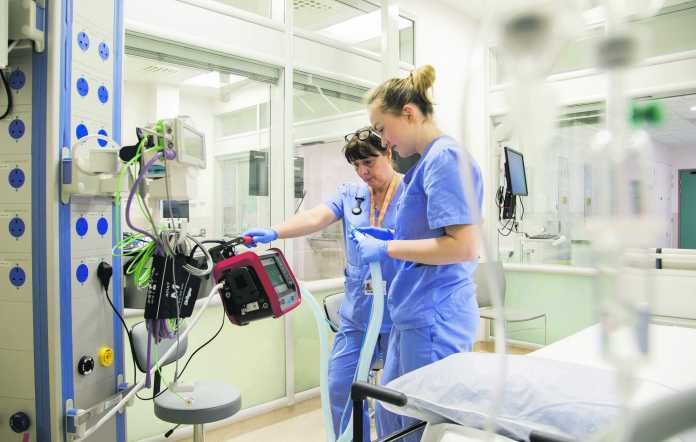MANAGEMENT at University Hospital Limerick (UHL) cannot say if all their consultants are fulfilling the hours they are obliged to spend treating public patients.
Responding to issues raised in an RTE Investigates programme on Tuesday night, a spokesman for the hospital group said that they expect all consultants to adhere to their contracts.
“Not doing so is unacceptable and compliance is monitored to ensure the requisite number of hours is being delivered to the public health system”.
But the statement does not say if the contract requirements for consultants are being met.
The RTE programme revealed that in 14 out of the 47 acute public hospitals, consultants were spending more than the contracted time on private work.
It also featured the plight of Limerick woman, Mary Comber, who sold her jewellery so that she could pay for private treatment having waited years for cataract surgery.
In 2008, the terms of the contracts of consultants working in public hospitals were changed to regulate the amount of time they could spend on their private practice while in the hospital.
Under the deal, most consultants are contracted to work between 37 and 39 hours a week in the public system, allotting around 80 per cent of their working week to public patients.
But, according to the RTE programme, more than 43,500 public patients on waiting lists lost out to private patients in 2015-16 and the HSE stopped gathering national data on compliance with private practice limits in 2014.
According to the UHL management statement, the public/private mix for UL Hospitals Group is 72 per cent public to 28 per cent private.
The statement added that “many consultants work beyond their contracted hours in our hospitals,” but did not specify how these extra hours are split between their public and their private patients.
“Compliance with the public/private ratio is managed on a continuous basis and what’s important is the trend over a number of reporting periods,” the spokesman said.
“UL Hospitals Group acknowledges that in some specialities including orthopaedic, ophthalmology and endocrinology, we have the lowest level of consultant cover compared to other parts of the country.
“In orthopaedics, for example, there are five consultant surgeons covering a population of approximately 380,000, which we believe is the lowest number per head of population in Ireland”.
“UL Hospitals Group acknowledges the impact these long waits can have on patients and we work with the National Treatment Purchase Fund (NTPF) where funding allows to outsource patients waiting the longest times to private hospitals for treatment,”the statement concluded.







